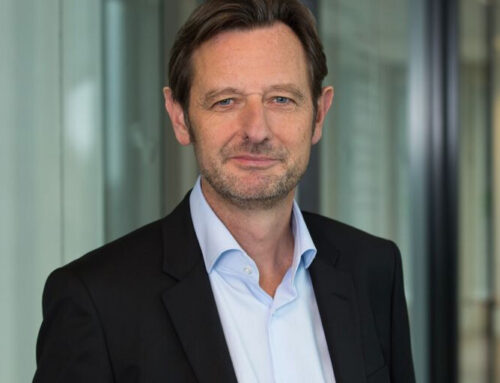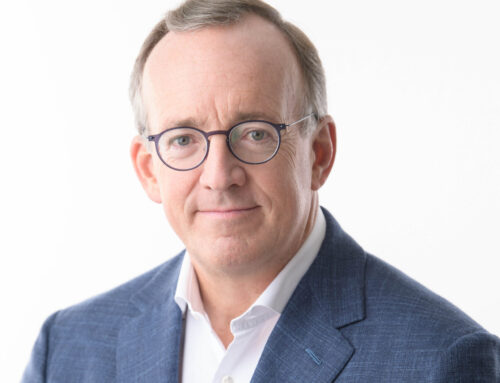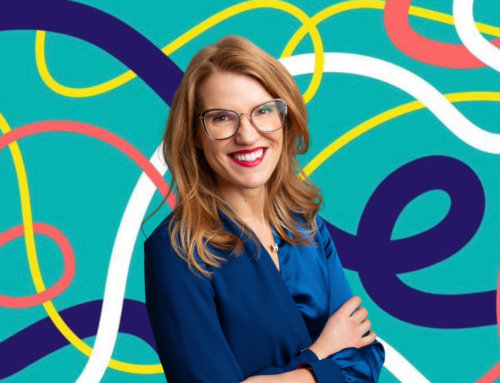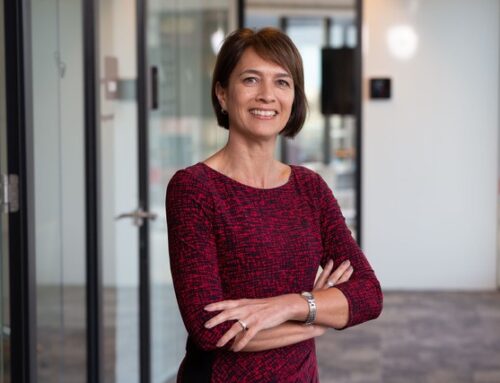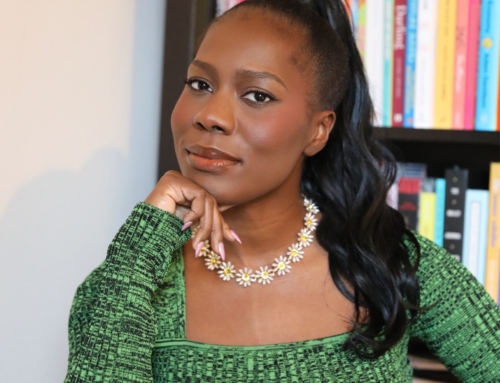 Listen to our new podcast episode where we explore why ESG strategy is necessary for every business with Tony Kypreos; entrepreneur, corporate innovator, and investor with 30 years leadership experience. Learn how using an ESG strategy can benefit society, the planet, and your business.
Listen to our new podcast episode where we explore why ESG strategy is necessary for every business with Tony Kypreos; entrepreneur, corporate innovator, and investor with 30 years leadership experience. Learn how using an ESG strategy can benefit society, the planet, and your business.
Tony is currently on the Advisory Council and a Venture Partner for the world’s leading UN Sustainable Development Goals Innovation Accelerator, Accelerate2030. He is also active in research and academia as a visiting lecturer and mentor at the University of Cambridge. As an entrepreneur Tony has founded and co founded several companies as well as being part of the senior leadership team for the $800 million Nasdaq IPO of agency.com.
Find out more about Tony here: https://www.linkedin.com/in/tkypreos/
Listen to the S2 E6 ‘Importance of ESG Strategy’ with Tony Kypreos.
You will learn these 3 lessons from Tony:
- Make Your Organisation Thrive
- Maximise Your Social Impact
- Recognise Natures Worth
This podcast episode was recorded in 2023.
If you enjoyed this episode, make sure you subscribe to this podcast and please do leave us a review and rating on your player of choice. We will be updating you on upcoming series on our social media so remember to follow us.
Transcript of the episode
Zannah Ryabchuk
Hello and welcome to the second series of three lessons from breakthrough leaders with me Zannah Ryabchuk CEO of breakthrough global. And
Bart Sayle
with me, Bart Sayle, founder of breakthrough global, where we’ve spent the past 30 years developing the breakthrough methodology to help transform companies and people looking to reach their highest level.
Zannah Ryabchuk
And this podcast is all about giving you insider tips, and the know how from the world’s foremost leaders and creative talents, distilling their knowledge and experience into three lessons, which we guarantee will help you and your companies to unleash your potential. And you can get in touch with us at bartsayle@breakthroughglobal.com. To find out more. In today’s episode, we’ll hear from Tony kypreos. Tony is an entrepreneur, a corporate innovator, and an investor with 30 years of leadership experience and an authority on entrepreneurship, innovation, corporate venturing m&a, and developing high performing teams. His focus is on the interdisciplinary innovation for health, social and environmental challenges. He is currently a key player for the UN Sustainable Development Goals innovation, accelerator, accelerate 2030 so Bart you first introduced me to Tony, because he very kindly offered to write an amazing case story in the first person for us about his experience with breakthrough at T Mobile. And since then we have many conversations about what’s going on for him with VCs and other initiatives and his passion for the environment. And he’s really, really lovely, very charming, very helpful and very fascinating guy.
Bart Sayle
Yes, zannah. I first met Tony, when he was with T Mobile. We did a lot of work across the whole of Europe for T Mobile. And they were a great company. But they were also a very tough clients. And Tony very quickly, became a fan of breakthrough and really championed us and supported us and sponsored us with other parts of T Mobile that were initially resistant. So I’ve got a lot of time for Tony. And we’ve always kept in touch often on and as we were doing the podcasts, I thought to myself, he would be brilliant because he’s got such a wide view of everything that’s going on in business and in the world today.
Zannah Ryabchuk
And we started this podcast episode by talking about how Tony first worked with breakthrough at T Mobile. Welcome to the podcast Tony.
Tony Kypreos
Thanks for having me, Zanna. Great to see you again. Great to see you again. But yeah,
Bart Sayle
it’s great to see you, Tony. We go back a couple of decades. And you were with T Mobile. And we were brought in to work with you with the breakthrough programme. Do you remember that? Oh,
Tony Kypreos
I remember it vividly. Like it was like it was two years ago, not 20 years ago. And it was all liquid. So it wasn’t it that you worked with before at Wrigley’s and it was so great having breakthrough because it it not only gave us the roadmap to get through some of the real blockages and issues, but he actually helped us uncover collaborators and people that thought the same thing, but probably were afraid to ask sort of situations. So yeah, it was a typical big telco that was growing very fast, but overstated processes and lots of different confusing things going on. And it reminds me of Peter Drucker where he says, Don’t confuse motion with progress. There’s lots of motion a lot of spinning wheels, but very little progress. So yeah, it was it was a massive impact, I still remember the breakthrough events and the the energy from them. And it was really great. And we want one consequence was that I was trying to get a project off the ground. And it was being blocked at every avenue because he didn’t follow a legit process. And we managed to get collaborators together and and one thing in terms of return on investment that just one project in one country in one year create 100 million euros of incremental profits. So it may be your undercharging there, Bart, but it was a it was a massive, massive impact. And I got I got promoted on to executive board on innovation and business development. I really took a lot of that learning with me and he had an impact on my on my future life as well. So, so thank you very much. It was a gift, a gift for life.
Zannah Ryabchuk
Today, we’ll learn these three lessons, make your organisation thrive,
Tony Kypreos
Master real challenge trying to map out what you’re good at what you can get paid for what you love and what’s good for the world that and only that everything else is excluded. maximise your social impact. You had some very cynical people, right and you don’t have have to bring them on board. Because if you get enough good people on board, doing the right things, those barriers will be swept away. Recognise nature’s worth, that needs to be ways in which natural capital is valued within a capitalist system. Protecting what we have is actually probably the most valuable thing we can actually do.
Bart Sayle
Lesson one, thriving organisations are healthy organisations. What do you think today about healthy organisations or, or the fact that many of them are not, and yet people have to work in them.
Zannah Ryabchuk
And we don’t just mean health in terms of health and wellness or well being or physical health, do we, but it is about health for the planet, healthy contribution to society, all of these sort of metrics as well.
Tony Kypreos
the way to do I mean, there was there was actually a research article in The Lancet just less than two years ago. And they researched 10,000 young people between 16 to 25. And they were finding things like climate anxiety, feeling of helplessness, and the resentment they have for governments and corporations. I mean, 75% said, they, they the risk of the future, and 83% think that corporations and governments are not taking care of the planet. And when you look at other research, there was something done by Imagine one, which is Paul Pullman’s organisation, and they looked at, you know, the key concerns that the younger, it could be in the 30s, as well, people have with their organisations, they don’t trust the leadership, and they have concerns about what the companies are doing. So that’s, that’s a key issue within organisations, both in terms of the planetary health and actually well being of organisations anxiety, and not associated positively with where you work is a very negative thing. And to answer your question about making a company healthier. Disruption is gonna impact corporations all around and in your career, whether you’re early in your career, or even more senior, you have a role to play to make your company more resilient, and to scale it up and tool it up in terms of its workforce. And that suggestion is many things you can do. And there’s no excuse now that if you’re interested not to learn, and find the resource, not like when we were younger, but there were some it wasn’t really on the agenda was it when I was at Nestle and Diageo, we didn’t know about these things. So we didn’t know we were doing there
Bart Sayle
was the there was the odd thing on sustainability. And, and it was seen as something that we really need to just pay lip service to it and then avoid it as much as possible. I can remember well,
Tony Kypreos
unfortunately, still very much the case now, right? So the answer is, yes, you there is a sweet spot between doing these things, and making your company more resilient and making it actually survive in the future. And there’s obviously things to avoid this things that are very difficult to reconcile, like, followed fossil fuel extraction, or military companies or gambling or fast fashion. So one thing to do with helping your company be more resilient and more effective is, first of all, choose the right company. That’s important, you know, in companies that have been have been open enough to do breakthrough, for example, and are actually doing things they’re not greenwashing. They’re not lobbying and not hiding it from their stakeholders are the right one. So choose the right companies, even if even in financial services, you know, certain banks like JP Morgan, or Citibank, or HSBC, or Barclays, they invest a lot in fossil fuels. But then there’s Triodos Bank and atom bank. And they’re very, very new age and very environmentally friendly. And they they’re very successful. Choose the right organisations. And then when you’re in within your organisation, do what I did, you know, and what breakthrough enabled me to do. You there’s going to be other people that have similar sort of thoughts, but have come out of the bush, as it were, are, they’re hot, they’re in hiding, but they’re thinking the same thing. And do your research, you know, you know, there’s so much information out there. So the first thing I would do, and I spent about 50% of my life now reading these things, talking to people that are experts, find the courageous smart people that are leading the way, you know, you will learn a lot from them. And then I came across this thing called ikigai Have you ever heard of ikigai?
Bart Sayle
Yeah, yeah, just give it just give us a summary of it. Yeah, yeah.
Tony Kypreos
I mean, it’s a it’s a Japanese term. It means the meaning meaning of life or a purposeful life and there’s, there’s four concentric circles and one is what you’re good at. And another one is what you get paid for and those two things together as your profession think probably 95% of people focus all their life on their profession, that’s what I was doing. But then there’s two other circles, which is what you love, and what’s good for the world. And that’s your mission effectively. Really, it’s those two circles that were missing. And that’s what really I focus on 100%. So, the key thing is, you can’t keep them separate, because your mission then becomes like a hobby, or vacation or make a career out of it. And that’s the real challenge, trying to map out what you’re good at, what you can get paid for, what you love, and what’s good for the world. And that’s been my, my journey, as it were, since then finding that and only that everything else is excluded, you know, whatever it pays, doesn’t matter. If it doesn’t fit those, those four things. It doesn’t, it doesn’t, it doesn’t get on the bus.
Bart Sayle
So in breakthrough, we had people working on the vision for the company. And also that overlapped with their vision for themselves, and their purpose. And what we did to really push them and stretch them and get them out of the comfort zone. We had an exercise that we used to do on every programme with every person where they had to come up with 100 year project. So a project that may not actually produce results in their lifetime, but one that they could set up here, and then leave as a legacy. And we used to call this the the legacy exercise. And actually some people did carry on afterwards. But why I’m mentioning it here, I remember that there were really just three areas, that people created their legacy projects in the environment, health, and education. And what it showed me is that whoever we interact with on this planet, more or less, at some level, and you could call that the highest level of vision, or the deepest level of vision, we’re all aligned in a way. Because even though we did this with hundreds of people from different countries and different companies, with few exceptions, their projects were in those three buckets. Wherever we’re coming from once we start to think outside of our own little world, and our own lifetime, we see bigger things, Lesson two, enroll the right decision makers to deliver your ESG goals.
Tony Kypreos
There’s other things you can do, which is around learning the tools in this something called ESG. environmental, social and governance. And we’ve all heard about it, and it has some negatives and criticisms, but at least it’s a framework with credibility. And what I always tell people, they say, Well, how can I get this through? And the key thing is there’s no point just chain talking to people that agree with you wholeheartedly. You’ve got to learn, how can you speak to a CFO organisations and not really people, in some ways, they’re legal constructs, and they have to provide dividends and maximise shareholder value. But if you can find the sweet spot, and explain to your CFO, there’s a business case, there’s savings in materials, there is less chance of potential regulation being impacted. So learn about regulations in your industry. And you’ll find savings and opportunities and risk mitigations that can help you. So I think the first thing is not to just to have a hobby horse, but to actually know your facts, have knowledge and link him with other functions don’t just sit in an ivory tower in marketing or finance supply chain, but you got to mix with the other other functions in organisation. And then you will get projects off the ground, and then you will feel better about what you’re doing. And you’ll make your company more resilient and more more prepared for the disruptions in the future. I
Zannah Ryabchuk
think that’s really interesting, that balance, and we certainly see it of, of recognising the business case, as well as the ethical case. And in a way it makes me really sad because people should be doing it because it’s the right thing to do. But it also makes me really happy because we’ve got a reason now, you know, a set of very clear bonuses that you can get from doing the right thing. And
Bart Sayle
one of our targets the very companies that aren’t healthy. I mean, we’re, you know, they the ones really it’s when we work, and we’re doing breakthrough, and we meet some sort of cynical views or cynical people. One of the things I’ve always said is well, that’s why we’ve got a business because there are people in in the workplace There are cynical, that are helpless that are resigned. And breakthrough can help shift that. And I think we’ve seen that we’ve seen in three decades, why I’m optimistic is that I have seen a different consciousness in some businesses and some areas of business, there’s
Tony Kypreos
probably a lot of people don’t even know these things are coming. But you as a person who cares about it, and as an employee that cares about these things, it’s your agency to learn about it, make may expose it as a potential risk, and then instigate a project to deal with it. So there are tools in there, right, there are mechanisms to do things. And I think if the tipping points of people is not 50%, it’s not a voting system. If you get 10 15% mobilised, the, the grumpy people will go along with it, right. And I remember but very, very vividly, you had some very cynical people at T Mobile, and they listed these have vested interests, right, and you don’t have to bring them on board in don’t waste energy on them. Because if you get enough good people on board, doing the right things, those barriers will be swept away. So innovation, for example, when I was doing stuff, there was like, innovation is very important. That’s how we have to have a process that kills innovation. So basically, he was trying to block everything that was coming through. And, you know, I was I was threatened to be fired. And I said, you know, please, please do so you don’t put me our misery, I’m gonna make this happen, whether whether you like it or not, and, you know, but you need people like you to mobilise and give the tools and the techniques and the ability to connect people together, and get the energy up, and then things will happen. And it’s those few status quo vested interests are holding your company’s back.
Bart Sayle
One of the founding reasons for me getting into breakthrough was because I realised that, you know, business was now the biggest force on the planet, affecting everybody. But then, and to some extent, now, business itself doesn’t have a consciousness which matches that level of its power, its influence. So part of breakthrough was to raise people’s consciousness, and particularly leaders. It’s not the only way that it’s been done. But I think I’m, I’m proud of the fact that breakthrough has played its part in raising consciousness of people that we’ve worked with, beyond their work, their career, their business, into other aspects of life. And the more we can do that, it’s already starting now there’s a big movement for that you can see it across LinkedIn, for instance, everybody’s talking about purpose now. Not everybody’s authentic, but everybody is talking about it. And I think we’ve seen new generations of leader I’ve certainly seen new generations now taking up leadership in companies that certainly have that higher consciousness than some of the leaders I met 30 years ago, lesson three, how much is nature worth? We’re actually going through some significant transitions now. COVID was one, and there’s not finished yet, and there’ll be more ahead. Brexit was one for Britain, Ukraine, is another one, which is affecting everybody globally. You know, what is this leading? Do you think?
Tony Kypreos
Yes, that’s a really, I mean, I think these are just the tip of the iceberg. Unfortunately, I work a lot. I’ve done other stuff in in health, environmental health, how the how the environment is impacting our health, such as, you know, air pollution, water pollution, I think the COVID was almost a light touch. Then you look at the war in Ukraine, you know, that that’s devastating. And there was a thing, maybe 8 million people displaced, maybe more, but the trends are looking at there could be 1 billion displacements, in terms of people being refugees from particularly the global south and, and it takes the economist say it takes 200 million to have a global economic collapse. And the thing is, people just don’t just become refugees when there is droughts, and when there is there’s there is water scarcity, and then there’s issues with with food production, etc. There’s gonna be conflict as well. So there’s going to be more conflicts developing so There’s no difference between a material catastrophe and a social catastrophe. So the levee broke eight breaking with a with a hurricane Katrina was a material breakdown. But then you got a, you know, a million refugees and 1000s of people dead. That’s the social impact. So they will have links. So the bigger thing of biggest thing of all is actually keeping and protecting what we already have. And we live in a very capitalist sort of system, there needs to be ways in which natural capital is valued within a capitalist system. And there’s a gentleman called Ralph Kami, who works at the IMF who’s doing some great work on creating financial instruments to value nature. So I did a lecture up in Durham Business School and I with the, with the undergraduates and postgraduates and try to explain to them, what’s the value of a whale, whale, if you pack it up and kill it, and as pet food or whatever, we still happens, it’s about $40,000, if it’s for, if it’s for whale watching, it’s about a million dollars a whale. But if it’s for now, it’s actually $90,000 a whale, but if it’s for the Eco ecosystem value, which is like feeding phytoplankton, and fishery, and fish stocks, etc, it’s about 2 million a whale, but we don’t value that and a tree can’t be valued, and the river can’t be valued. So there’s really interesting work being done there. And if we can get that, right, we’ll make good progress. But we’re still arguing about the metrics rather than getting it done. But those are sort of things that if you’re in finance, and if you’re in a corporation, you can join groups in that learn about it and make an impact. So protecting what we have, is actually probably the most valuable thing we can actually do.
Zannah Ryabchuk
I find the idea of starting to calculate what nature is worth, absolutely fascinating. And it’s something I hadn’t really thought about before other than in terms of carbon offsetting, which has got lots and lots of pros and lots and lots of cons to it. So hearing Tony talk about this really gave me a whole new set of insights around how we can start to think about the future and protecting the planet.
Bart Sayle
Yes, and it’s so important. I mean, the amount of pollution, for instance, that has been created over the years. And none of that pollution was factored into the cost of producing the goods that were then sold, and we bought and we consumed. And now we’re starting to do that. And a great example for me is with I was working with Conservation International on ocean health, and we were out in the Philippines. And we were working with some local fishermen. And and for for years now. In the fishery, they’ve been hunting manta rays for food, and manta rays now becoming very rare. And this was one of their breeding areas. So Conservation International economists, they worked out what a manta ray is actually worth to that not just that locality to bid to that country in terms of tourist income from people and divers who want to see them. And the difference was astounding. And when this was shown to the local people, they shifted immediately from fishing mantas to protecting mentors overnight. And that’s the impact that can have.
Zannah Ryabchuk
This is the part of the show where we ask you your hotseat questions. Are you ready?
Tony Kypreos
I’m definitely ready.
Zannah Ryabchuk
Fantastic. All right. So number one, what inspires you in life,
Tony Kypreos
I think we talked about a little bit is courageous people and the underdog. So indigenous populations fighting in the Amazon is to save the save their lives. And I just love that sort of thing when the underdog is, is is fighting the powerful.
Zannah Ryabchuk
What brings you energy and motivation in everyday life?
Tony Kypreos
I think doing things, being able to find what we’re talking about the ikigai and getting that together and finding that that cross section and and just seeing even just looking at my kids when they’re in the zone and join themselves on my son doing kung fu or my daughter’s doing ballet or learning to play piano you know, seeing kids in the flow and doing stuff that they just do it for the pure joy of it that that that I find that we lose somewhere, our childlike qualities as we get older and get too serious so that that being in the flow,
Zannah Ryabchuk
and if you could only take one book to a deserted state and what would it be?
Tony Kypreos
Can you How to build a life raft with.
Zannah Ryabchuk
Absolutely can Yeah, we had another podcast guest do the SAF Survival Guide.
Tony Kypreos
But it’ll be something on the books that people should read, I think that really inspire them will be somebody like Jason Heckle, I think is really great. Less is more or a books that 1973 ef Schumacher wrote small is beautiful. And he wrote that 50 years ago, and everything still applies. So fantastic. You’ve been thinking about this. Isn’t that isn’t that good? But fantastic.
Bart Sayle
But yeah, I was I was really into all of that. And something you said earlier about it. I remember when I first joined Unilever and I, I was a Nature Boy and into the environment and so on. They thought I was nuts. So that’s one thing I’m optimistic about is is the generational difference that I’ve seen in my career. But seeing the the younger generations coming in, there’s already a different consciousness within that, and and maybe, maybe we have to wait for some of those generational changes to get the critical mass that we need. Tony, this has been fantastic. It’s great to get back in touch with you. I think any one of our listeners can take something out of this conversation with you and start where they are, start with themselves and start to make a difference. Thanks so much.
Tony Kypreos
Thanks for having me.
Bart Sayle
Thank you for joining us for today’s three lessons. And have you got
Zannah Ryabchuk
a question or comment or want to find out more, you can email us at BART Sayle at Breakthrough global.com or connect with us on LinkedIn at Breakthrough global or on Instagram at global breakthrough. We’d
Bart Sayle
love to hear your own leadership stories. And we’d also love for you to share this episode on your own social media and review and rate this podcast on the player of your choice.
Zannah Ryabchuk
And so once again, thanks to our production team. Julia Šoltysová over at Breakthrough global and Robin Lee Burnett, fairly media and of course, thank you for listening.

